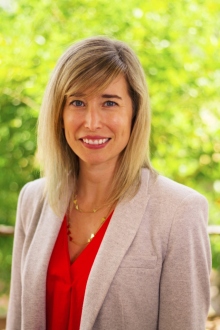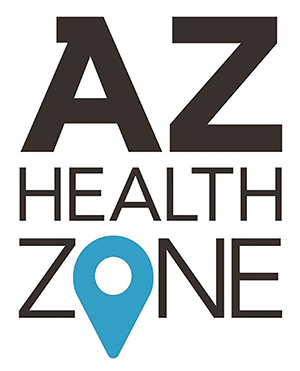Laurel Jacobs, DrPH, MPH
I grew up in Seattle, and I’ve lived internationally in Mexico and Honduras before moving to Tucson in 2005 to pursue my Masters in Public Health in Health Education.
My dissertation for my Doctorate in Public Health Policy and Management focused on the role of social capital in a community health worker (CHW) model for grassroots community advocacy. Through a mixed-methods research design, I learned that CHWs exhibited high bonding social capital, and increased their bridging and linking social capital after receiving training in community advocacy. I developed a model to describe the relationships between social capital and my qualitative findings: in essence, that CHWs play a unique role in community advocacy efforts by using their social capital to develop leaders, unite people, build new partnerships, make voices heard, approach power players, and take issues up the ladder of command.
I am the lead evaluator for Arizona’s SNAP-Ed program and the Principal Investigator on the project. I worked for Arizona’s SNAP-Ed program at the University of Arizona Cooperative Extension for ten years before becoming an external SNAP-Ed evaluator. In addition to leading the Arizona SNAP-Ed evaluation team, I enjoy presenting topics of evaluation interest in graduate level University of Arizona courses, at national conferences, and within the SNAP-Ed professional community. My research interests include:
- Innovating SNAP-Ed evaluation at local, state, and national levels
- Best practices in program planning, implementation, and evaluation
- The economic contribution of SNAP-Ed
- Community and grassroots advocacy to address heath disparities
- Utilization-focused evaluation
I enjoy reading, salsa dancing and travelling with my son and husband. My public health passion is empowering people and families to be their own greatest advocates, and I hope to capture and celebrate communities’ successes in creating healthier communities through Arizona’s SNAP-Ed evaluation project.
Curriculum Vitae
Peer-Reviewed Journal Publications and Abstracts
- LeGros T, Jacobs L, Goodman G, Orzech K, Holmes E. A Systems Approach Helps Explain Significant Improvements in Local Wellness Policies among SNAP-Ed-Supported School Districts. Journal of Nutrition Education and Behavior, 2020; 52(8): 766-774.
- Jacobs L, Orzech K, Goodman G, LeGros T, Martinez SH. Evaluating Factors for Success in Community Coalitions. Journal of Extension, 2020;58(1).
- LeGros T, Jones B, Jacobs L, Orzech K, Torbert K, Martinez SH. A Case Study of a New State Model for Assessing Local Wellness Policies. Journal of School Health, 2019 DOI: 10.1111/josh.12728.
- LeGros, T, Hartz, V, Jacobs, L. (2016) Reliability of a Kid's Activity and Nutrition Questionnaire for School-Based SNAP-Ed Interventions as Part of a Tiered Development Process. Journal of Nutrition Education and Behavior, http://dx.doi.org/10.1016/j.jneb.2016.10.003.
- Kerna A, Frisvold G, Jacobs L, Farrell V, Houtkooper L, Misner S. Application of IMPLAN to Extension Programs: Economic Impacts of the University of Arizona Cooperative Extension SNAP-Ed Spending. Journal of Extension. In press.
- McCullough L, Farrell V, Hartz V, LeGros T, Jacobs L, Misner S. The Supplemental Nutrition Assistance Program Education (SNAP-Ed) Elementary School Students had self-reported and observed behavior changes. Experimental Biology Conference; San Diego, California. April, 2016.
- McCullough, Farrell V, Hartz V, LeGros T, Jacobs L, Misner S. Positive Results of Single Lessons with Adult Learners of the Supplemental Nutrition Assistance Program – Education (SNAP-Ed). Society for Nutrition Education and Behavior; San Diego, California. July, 2016.
- Misner S, LeGros T, Farrell VA, Hartz V, Jacobs L, Armstrong Florian T. Nutrition and Physical Activity Education among SNAP-Ed Eligible Middle School Students Reveals Disconnect between Knowledge and Behavior. Experimental Biology Conference; Boston Massachusetts. March, 2015.
- Kerna A, Frisvold G, Jacobs L, Farrell V, Houtkooper L, Misner S. The Economic Contribution Of The University Of Arizona Cooperative Extension Supplemental Nutrition Assistance Program Education (SNAP-Ed) Spending To The State Of Arizona. University of Arizona Cooperative Extension publication. 2015; April (az1662).
- Jacobs L, LeGros T, McCullough L, Farrell VA, Misner S. Developing an Integrated Program Design for SNAP-Ed Programming and Evaluation. Childhood Obesity Conference; San Diego, California. June, 2015.
- Jacobs L, Kerna A, Farrell VA, Frisvold G, Misner S. Economic Impacts of the UA Cooperative Extension SNAP-Ed Program: An Application of IMPLAN. Childhood Obesity Conference; San Diego, California. June, 2015.
- Schachter KS, Ingram M, Jacobs L, Hafter H, De Zapien JG, Carvajal S. Developing an Action Learning Community Advocacy/Leadership Training Program for Community Health Workers and Their Agencies to Reduce Health Disparities in Arizona Border Communities. Journal of Health Disparities Research and Practice. 2014; Vol. 7, No. 2: 34-49.
- Bea JW, Jacobs L, Waits J, Hartz V, Martinez S, Standfast R, Farrell VA, Bawden M, Geiger M, Whitmer E, Misner S. Need for Specific Sugar-Sweetened Beverage Lessons for 4th and 5th Graders. Journal of Nutrition Education and Behavior. 2014; Vol. 47, Issue 1: 36-43.
- Armstrong TA, Jacobs L, Martinez S, Bea JW, Farrell VA, Hartz V, Misner S. Change in Nutrition and Physical Activity Behaviors Among SNAP-Eligible 4th and 5th Grade Students: A Multi-County Study. Journal for the Society of Nutrition Education and Behavior. 2014; Vol 46, No. 4, S183–S184.
- Cler L, Jacobs L, Farrell VA, Bailey A, Misner S. Teachers’ Successes and Barriers Providing Evidence-based Nutrition Education in Limited Resource Schools: Maricopa, Pima, and Pinal Counties. Arizona Public Health Association Annual Conference; Phoenix, Arizona. April, 2014.
- Sabo SJ, Ingram M, Reinschmidt K, Schachter K, Jacobs L, Guernsey de Zapien J, Robinson L, Carvajal S. Predictors and a Framework for Fostering Community Advocacy as a Community Health Worker Core Function to Eliminate Health Disparities. American Journal of Public Health. 2013; Vol. 103, No. 7: pp. e67-e73.
- Bea JW, Martinez SH, Farrell VA, Armstrong-Florian T, Bawden M, Jacobs L, Misner S. Sugary Beverage Consumption, Not Water, Increases in Springtime Among Low-income Arizona 4th and 5th graders. Journal for the Society of Nutrition Education and Behavior. 2013; Vol 45, No. 4, S29.
- Nurss E, Jacobs L, Going S, Bea JW, Farrell VA. Strategies from Teachers to Increase Participation in School-based Supplemental Nutrition Assistance Program Nutrition Education (SNAP-Ed): Excerpts from a Pilot Study. Childhood Obesity Conference; San Diego, California. June, 2011.
- Jacobs L, Farrell VA, Reeves J, Ottenbacher H, Houtkooper L, Going S, Misner S. Education for SNAP Eligible Children: A Model for Sustainable Partnerships to Reduce Childhood Obesity. Research Frontiers in Nutritional Sciences Conference; Tucson, Arizona. October, 2009.
- Jacobs J, Guthrie B, Avila G, Jacobs L, Mickey-Colman N, Wilson AR, DiGiacomo R. Homeopathic Combination Remedy in the Treatment of Acute Childhood Diarrhea in Honduras. The Journal of Alternative and Complementary Medicine. 2006; Volume 12, Issue 8: 723-732.





